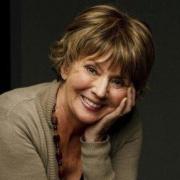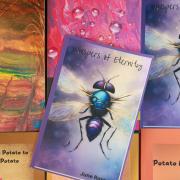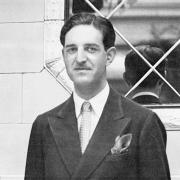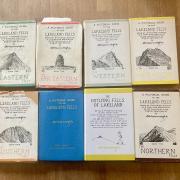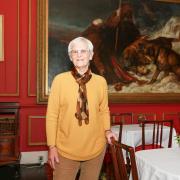It’s that time of the year when we celebrate the red rose county and its splendid people. To get the party started, here are 20 of our favourite quirky characters.
It’s one of cinema’s golden moments when gormless Reg, leader of the rebellious but painfully inept People’s Front of Judea, asks his followers: ‘What have the Romans ever done for us?’
The scene, from Monty Python’s Life of Brian, doesn’t quite go the way Reg hoped and he is eventually forced to ask: ‘All right, but apart from the sanitation, the medicine, education, wine, public order, irrigation, roads, the fresh-water system and public health, what have the Romans ever done for us?
As the Lancashire Life team prepares to put up the bunting, sip a small sweet sherry and celebrate Lancashire Day on November 27th, we thought we’d ask the same question - but give it a red rose twist: ‘What have Lancastrians ever done for us?’
We decided to avoid the obvious – the Arkwrights, the Pankhursts and The Beatles – and, with a nod to Monty Python, go for our more quirky unsung heroes and heroines. So here, in no particular order, are 20 lively Lankies who made their mark on the world.
Tom Billington was better known to grappling fans as The Dynamite Kid, credited with being one of wrestling’s most influential ‘performers’ with an international following. The Golborne lad said his success was down to having a knockout trainer - Warrington’s Ted ‘Doctor Death’ Betley.
Mystic Meg, born Margaret Anne Lake in 1942, became Britain’s most recognised astrologer when she started a weekly spot on the televised National Lottery draw. Who could have foreseen that for the lass born in Accrington?
Salford’s James Rawson, who was born in 1715, would certainly have been a match for Robin Hood. He was able to put an arrow in the bullseye, split the arrow with another and then split that with a third. People came from across continents to challenge him but he died in 1795 never having been beaten.
Francis Hodgson Burnett enthralled generations of children with her books, Little Lord Fauntleroy and The Secret Garden, but her early years were anything but fairy tale. Born in Cheetham to middle class parents, her father’s death meant penury in a Salford backstreet. The family emigrated to Tennessee, where she found fame as a writer.
A blue plaque on a house in Leigh marks the birthplace of another great Lancastrian spinner of yarns, James Hilton. He learnt his trade on the Manchester Evening News but it was as a novelist he made his fortune, writing Lost Horizon and Goodbye, Mr Chips. He found his own Shangri-La in California, where he died in 1954.
John Cody Fidler-Simpson is better known to viewers of BBC News as John Simpson, the grandly named world affairs editor. Born in Cleveleys, Simpson has reported from 120 hotspots around the planet. Danger has rarely been far away – even on his first day at the BBC he was punched in the stomach by Prime Minister Harold Wilson.
The chances are we’d all be a lot bigger if it were not for Blackburn’s Audrey Eyton. She was a passionate campaigner for animal welfare but it was her devotion to high fibre foods that brought her to national prominence, devising the massively popular F-Plan Diet. The book is said to have been responsible for an eight per cent rise in the sales of baked beans. Critics said the diet caused flatulence and constipation, not a good combination.
Biochemist Barbara Low is credited with identifying the structure of penicillin, regarded as a vital step in the development of antibiotics. The Lancaster-born scientist had a distinguished career in the USA although she was once stopped from entering a science lecture because they thought she was the tea lady. Unsurprisingly, she became a champion for women in science and was a protégé of Nobel Prize winner, Dorothy Hodgkin.
Gerald McCann was a fashion guru of the swinging 60s. The lad from Fleetwood was one of the pioneers of the Mod look and he sold a million frocks for Marks & Spencer before moving to America. He was chums with artist Francis Bacon, dressed The Beatles and helped Mary Quant get started. He moved back to Lancashire, handing in his tape measure last year at the grand age of 87.
Rochdale’s Gary Regan was the son of the landlord of the Horse & Jockey pub. He always dreamed of living in the USA and he eventually ended up there writing several books on the art of bar-tending as well as a column for the San Francisco Chronicle. His Joy of Mixology book extolled the virtues of his ‘finger-stirred negroni’ – probably not one for Covid times.
Norman Myers was one of the leading 20th century environmentalists. The Clitheroe-born campaigner alerted the world to the fact that it was losing, on average, one species a day. His research resulted in an estimated $850 million being spent on worldwide conservation work. Norman, who died last year, was an advisor to the UN and the European Commission and he even managed to persuade Margaret Thatcher.
Paul Jarrett’s pioneering work was a game changer in the world of surgery. This stickler for standards spent 20 years designing and developing day centre units across the country so people could have surgery and be discharged in a single day. He also believed many procedures could be tackled by nurses.
Sylvia Gore, born in Prescot in 1944, has the distinction of scoring the first goal for England’s women in a 3-2 victory over Scotland. She once scored 134 goals in a season, prompting people to call her the Denis Law of women’s football.
As a young British soldier serving in Africa’s Gold Coast, Maurice Lowther was horrified to see children forced to drink water from muddy pools just to stay alive. He swore he would do something to help and he did. Thirty years later the man from Carnforth set up Water Aid, which has helped establish clean water supplies for millions across the Third World.
Kathleen Mary Drew-Baker is little known in her native Britain but in Japan her name is revered. The Leigh-born scientist is famous in the Orient for her research into the edible seaweed porphyra laciniata. In Japan, she is known as The Mother of the Sea and there’s even a memorial to her work, which led to a breakthrough for commercial cultivation of this food staple.
Like many on this list, the name John Mahoney might not be instantly recognisable but any fan of the Cheers spin-off, Frazier, would know him as the cantankerous father, Martin Crane. He was born in Bispham but got the acting bug at Stretford Children’s Theatre. John starred in several well-known films but it was in Frazier where he really found fame, even if he was often upstaged by his dog, Eddie.
Preston’s Stanley Brock became an obsessive philanthropist, something which cost him his marriage and most of his money. As a teenager, he moved to Guyana where he managed the world’s largest cattle ranch later setting up Remote Area Medical, a charity providing care for people living in places with few resources. While in Guyana he co-hosted an Emmy-winning television series highlighting the natural world. It had more than 32 million weekly viewers.
John Cunliffe created the immensely popular television character Postman Pat. Early on, the Colne-born writer managed to sell all the merchandising rights for a pittance. It was said to have cost him millions but he didn’t seem in the least bothered.
All children of a certain age owe a debt to Preston’s Leo Baxendale. He wrote and drew some of the Beano’s greatest strip cartoons, including Little Plum, Minnie the Minx, The Bash Street Kids and The Three Bears. In the 1980s he fought a seven-year legal battle for the rights to his Beano creations, earning a settlement that allowed him to found his own publishing house.
Which brings us back to Monty Python. Fred Tomlinson, a lad from Rawtenstall composed virtually all of the music for the ground-breaking television series and earned the gratitude of a nation by working in partnership with Michael Palin and Terry Jones to produce The Lumberjack Song.




